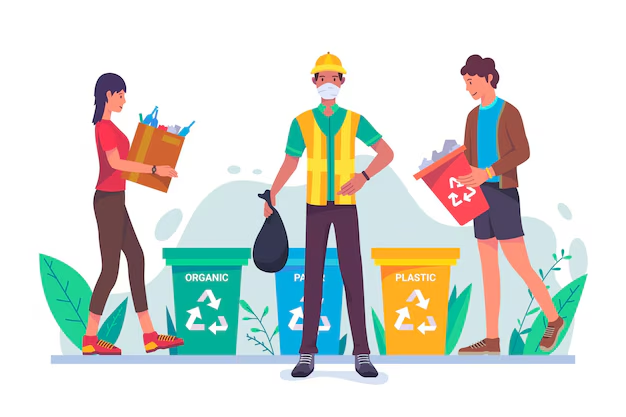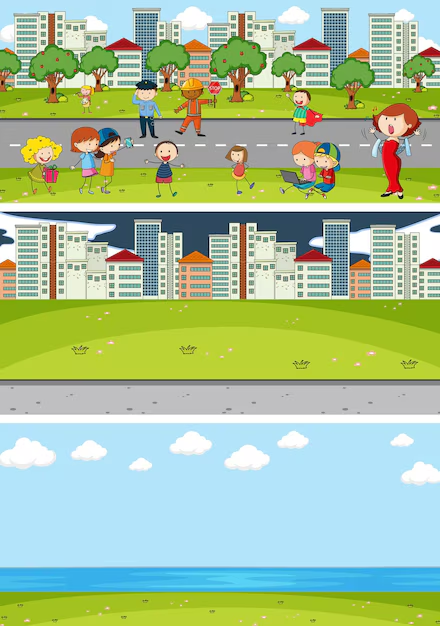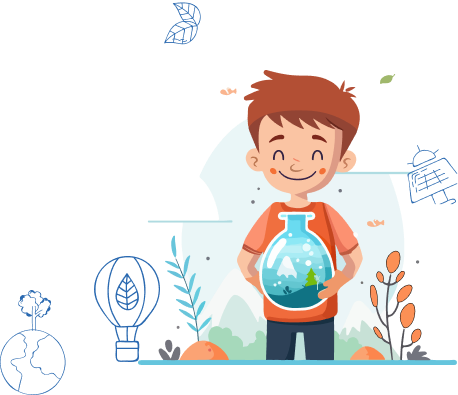Taking Charge of Waste – Complete Guide For Class 3 EVS chapter 12
Welcome to iPrep, your Learning Super App. Our learning resources for Chapter 3, “Taking Charge of Waste,” in Class 3 EVS are meticulously designed to ensure students gain a comprehensive understanding of this essential topic. These resources include detailed notes, interactive exercises, and practical examples that cover the entire spectrum of key concepts. From fundamental principles of waste management to practical strategies for reducing, reusing, and recycling, the materials encourage active participation. Additionally, engaging activities reinforce the importance of cleanliness and environmental stewardship, fostering a sense of responsibility and awareness among young learners. Overall, these resources aim to empower students to make informed decisions about waste in their daily lives.
The concept of “Taking Charge of Waste” in Class 3 EVS delves into the foundational principles of life by exploring the essential characteristics that define waste and its management. It emphasizes the significance of understanding waste generation in our daily lives and encourages students to actively engage in waste reduction strategies. Through interactive learning experiences, children will grasp the impact of waste on their environment and develop a sense of responsibility. The goal is to empower students to adopt sustainable practices, fostering a cleaner and healthier world for future generations.
Objectives Of Learning The Chapter “Taking Charge Of Waste”
The objectives of learning CBSE Class 3 EVS Chapter 12: “Taking Charge of Waste” focus on fostering environmental responsibility and awareness among young students. This chapter aims to help students understand the concept of waste and its impact on the environment. By exploring practices like reducing, reusing, and recycling, students learn how to manage waste effectively in daily life. Additionally, the chapter encourages students to recognize the importance of cleanliness, both at home and in the community, instilling habits that support a sustainable and healthy environment. Ultimately, “Taking Charge of Waste” empowers students to make conscious choices, contributing to a cleaner and greener world.
How is Waste Created?
We generate waste through daily activities—be it throwing away old clothes, food peels, or packaging. Often, this waste ends up in garbage piles around homes and schools. These activities create a mess that affects the environment and our well-being. That is why taking charge of waste is important.
Managing Waste: Our Responsibility

Managing waste is a collective effort. We can learn from examples where people and places have done an excellent job managing their waste. The lesson emphasizes that managing waste starts with each of us making conscious decisions about how we handle and reduce our waste.
Ways to Manage Waste

Improper waste management leads to harmful effects like diseases and environmental hazards. In many areas, waste like plastic can harm animals or pollute water bodies, making people sick. But there are success stories, like clean villages and towns, where waste management is taken seriously.
Observing and Acting on Waste Management

Take a look around your surroundings. Is your school or home clean, or do you notice waste lying around? Understanding how waste accumulates in certain areas can help you contribute toward solutions.
Reduce: The First Rule

One of the best ways to manage waste is to reduce it. Avoiding packaged products, using cloth bags instead of plastic, and sharing unused items like toys and books are effective ways to reduce the amount of waste we generate. This practice not only helps the environment but also teaches us to consume responsibly.
Reuse: The Second Rule
Reusing items instead of throwing them away is another key step in managing waste mentioned in the chapter “Taking Charge Of Waste”. For example, old clothes can be made into quilts or bags, and newspapers can be repurposed for gift wrapping. The idea is to think creatively and avoid throwing away things that can be reused.
Recycle: The Third Rule
Recycling is a crucial step in managing waste sustainably as mentioned in the EVS class 3 chapter 12 “Taking Charge Of Waste”. By recycling, we ensure that materials like paper, plastic, metal, and glass are processed and transformed into new products, reducing the need for fresh resources. Items such as used cans, old newspapers, and empty bottles can be collected and recycled rather than thrown away. Practicing recycling not only conserves natural resources but also helps keep our environment clean and reduces pollution.
Creative Waste Management

Encourage creative use of waste materials by making useful or decorative items. This practice reduces waste and promotes the idea of recycling. A great example is making a paper bag without using scissors or glue.
Places of Pride: Clean Villages and Cities
Several villages and cities, like Silluk in Arunachal Pradesh and Chhota Narena, have successfully implemented waste management strategies. These areas are now known for their cleanliness, serving as models for others. Programs like the Swachh Bharat Mission have played an essential role in promoting cleanliness across the country.

Separation of Waste
To manage waste efficiently, separating it into different categories is crucial. Dustbins of different colors, like green and blue, are used for specific types of waste:
- Green dustbin: For organic waste like leaves and food peels, which can be composted.
- Blue dustbin: For recyclable materials like plastic, metal, and glass.
By separating waste, we ensure that organic waste turns into compost while recyclables are processed for reuse, reducing overall waste.
Green Dustbin Blue Dustbin Leaves, vegetable peels, egg shells Plastic, metal, paper, glass
Your Role in Keeping Surroundings Clean
Everyone can contribute to keeping their environment clean. Simple acts like using dustbins correctly, reducing waste, and participating in cleanliness drives make a big difference.
National Cleanliness Day Pledge

On National Cleanliness Day (January 30), take a pledge to keep your surroundings clean and dispose of waste properly. By managing waste wisely, we can build a cleaner, greener world.
Reflection Activities
- Discussion: How is waste created? How can it be managed?
- Writing Activity: List plastic items in your home and suggest replacements.
- Drawing and Enacting: Create a poster of a clean village or role-play between a clean and dirty town.
Conclusion
In conclusion, CBSE Class 3 EVS Chapter 12: “Taking Charge of Waste” equips students with essential knowledge about waste and its management. By understanding concepts from “Taking Charge of Waste,” students learn the importance of reducing, reusing, and recycling to protect their environment. CBSE Class 3 EVS Chapter 12, “Taking Charge of Waste,” emphasizes personal responsibility and community involvement in maintaining cleanliness, making it clear that everyone has a role in creating a healthier world. With the resources provided in CBSE Class 3 EVS Chapter 12, “Taking Charge of Waste,” students are encouraged to adopt sustainable habits that foster a cleaner, greener future for all.
Practice questions on Chapter 12 - Taking Charge Of Waste
Get your free Chapter 12 - Taking Charge Of Waste practice quiz of 20+ questions & detailed solutions
Practice Now








